How Comedy Breaks Through Self-Defense Mechanisms With Garrett Gunderson, Part 3
Podcast: Play in new window | Download
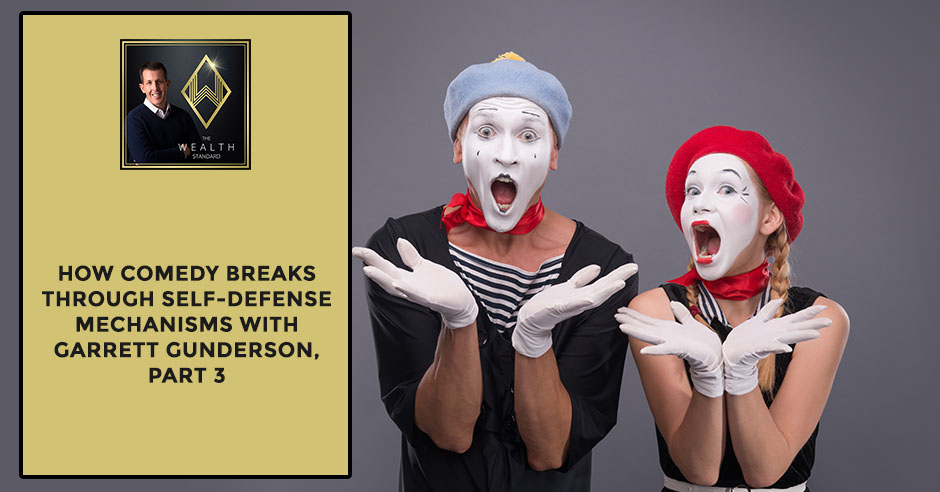
How can you change a person’s mindset without offending them? Through comedy. Patrick Donohoe welcomes back Garrett Gunderson for part 3 of the series. In this episode, Garrett shares his mission to help shift peoples’ mindsets for financial abundance, the best way of which is to poke fun at financial myths to open everyone’s minds! Otherwise, you may offend people who hold tight to these myths, and they’ll end up shutting you off! Tune in and discover the power of comedy.
—
Watch the episode here:
Listen to the podcast here:
How Comedy Breaks Through Self-Defense Mechanisms With Garrett Gunderson, Part 3
There’s a saying that embodies the idea of absolute and unwavering commitment. That saying is “burn your boats,” which is to say when you make a decision or a commitment, there’s no plan B, no escape clause, no way to back out of the commitment. My good friend, Garrett Gunderson has made a pretty bold commitment. He’s made one of the riskiest moves that I have seen in a long time. He spent what most people would consider a fortune on training, coaching, Hollywood-level film producer and production crews, and other consultants to create this one-hour comedy special primarily focused on the topic of money and personal finance.
In June of 2021, I was fortunate to be invited to live taping. It is seriously a Level 10. It met all expectations and exceeded them. It’s honestly hilarious. Before this film is made available, Garrett is going to be doing a multi-city tour and it may be coming to a city near you. Why did he do it? Why comedy? The taboo topics of politics and religion have a stepchild, which is money and personal finance. The stack of cognitive biases that prevent the mind from rationally evaluating financial strategy is pretty thick. The exception is someone having an open mind.
However, the rule is that what’s familiar with the status quo, it’s to stay on that course. Garrett hypothesizes that humor is a catalyst to breaking through these filters but he’s written three books. One of them is a New York Times Bestseller. He has been in the space for years. Despite what most would consider a success, his mission is to breakthrough what keeps holding people back from living a life that they truly want. He’s spoken on videos and has a pretty broad social media audience and he’s taken this message he believes as far as he can go. In this three-part series, you are going to learn a few things about what he’s doing and why he’s doing it.
Number one is how powerful ideas have made their way into our belief systems and with any betting scrutiny or evaluation, how difficult it is to go back and objectively understand these beliefs without shortcuts, such as humor. Number two, you are going to learn a unique perspective on wealth and what people are after with their goals like retirement or financial freedom. In the third episode, we are going to talk about Garrett’s journey where he’s put his essentially successful career and reputation at risk, why he’s done it and everything that has led up to this point in time in his decision. You are going to love these episodes. I can’t wait for you to experience this new content from Garrett and to learn more about his tour. If it’s coming to a city near you, go head over to FreeFlow.group.
—
What’s up, Garrett?
I’m doing good. I’ve got to spend a little time with you, which was nice, doing some comedy for your financial guys.
You have come such a long way. I remember back in the early days, decade-plus, you always had humor but you brought it to a totally new level. I’m excited to talk about what you are up to. At first, I want to set the stage because there are people that have not heard you before. I was hoping you would walk through your journey in the financial advising and the personal finance space. You have written two bestselling books and New York Times Bestseller is one of them. You have experienced quite a bit. I would love to hear about your journey because I think that will set the stage for what you are doing now.
I won $5,000 for being the young entrepreneur of the year as a teenager. That seemed like a ton of money for me. I came from a coal-mining town. I had this crazy thought when they handed me the check but it feels to me that much money in that second. Honestly, that sounds ridiculous but that’s what a teenager’s mind was. I was thinking, “This is amazing.” I want to invest it. Part of it is because I lived in this little town and I want to get to the big city, which to me, Salt Lake City was big and intimidating but it’s not. Coming from a town of 12,000 and seeing big. I have tried to invest the money but I was under eighteen and my mom wouldn’t sign off as a custodian because the Italian side of my family would put cash in coffee cans and put them in the cellar. It was like everything felt risky.
If you could save on tax, that’s a pretty guaranteed rate of return. Click To TweetLooking back, it would have been because that was the ‘90s. I probably would have put everything in the stock market because it was doing so well in the ‘90s, not knowing why or how it would work. I remember when I was eighteen, this guy that worked for World Financial Group came and showed me this variable universal life policy and ran the illustration at 18%. If I was $70 a month, I was going to be a multimillionaire. Forty years down the road before I was 65, that’s illegal to show 18% first off and no investment in the history of the world has ever had 18% a year for that time. It was fascinating. I’m like, “This is compound interest if it’s not taxable.” That led me into asking a lot of questions and giving an internship when I was nineteen years old for Guardian and Park Avenue Securities now.
You know the way that works and the internship was to bring your family and friends so we can let sell them products. The guy that ran that was very big on whole life. I, at the time, didn’t think my whole life was that sexy. I liked the variable whole life because Guardian had this variable whole life product. You can put it in the market, which was again, in the ‘90s, it was doing well then in the year 2000, two things happened. Number one is this dude from New York came here. He was bald but had a ponytail. He had a New York attitude, he was teaching and he was slamming variable whole life.
He’s like, “These are the ‘90s. This is the best you will ever do.” I’m going to compare because it was early 2000 and it started dipping for a couple of months. He was like, “I’m going to compare with this a couple of months that I’m at great decade to what whole life would do. This is even with no risks or minimal risks compared to high risk.” I remember getting a sinking feeling in my gut. The good news is Guardian will let you convert the policy over to your whole life. We went through and started converting policies. Also, at the time, I went back to one of my professors from college, Steven Harris, who managed $5 billion of municipal bond funds for strong investments.
They were the number two investment company in the world at the time. He was the number one investment advisor in the world, not an advisor manager or a money manager for $5 billion municipal bonds. He was always number one as well as the guy, then he decided to become a professor. He walked away at 55 and said, “My next 25 years is going to be to pay it forward and be a professor.” We became friends and he’s helped me dissect what was going on in the market. I didn’t really know what I was doing. Between that guy from New York and him, I’ve got all my clients but went out stock market.
I started and doing that in March of 2000. Everyone but one was out by May of 2000. For those that don’t remember, 2000 until 2002 was three double-digit negative years in a row. I saved hundreds of thousands, would have been millions, I just didn’t have that much money under management because I was a kid and most of my clients were family and friends from small towns but it helped me preserve some of those relationships. It was hard to tell people. I didn’t know how to tell them I was doing but that began my journey.
A mutual friend of Mike and I started flying together all over the country. It was 26 straight months I flew somewhere to interview people to go to symposiums or workshops because I wasn’t married yet. I had that made some money in college. I didn’t have a lot of expenses. I owned a property in Cedar City, Utah where I went to school. My then-girlfriend now-wife was living there while I was living in her parent’s basement because I was such a cheapskate back then and spending everything on learning this stuff. That’s when I started to focus on efficiency.

Comedy: Back in the day, the court jester could make fun of things that were real, that anyone else would get killed by the royalty.
I realized if you could save on tax, that was a pretty guaranteed rate of return. If you can save on interest, that’s a pretty guaranteed rate of return. If you could save on non-performing fees, hidden commissions or improper structure to investments, that was a guaranteed return or if there were duplicate coverages or again, improper structure with insurances. These were all ways that you could put more money in your pocket without having to take more risks.
I teamed up with three other young guys that were always asking questions, showing up to these kinds of things and we partnered in a firm called Ingenuity. We started this thing and it was $20 a month because we realized we can make people more money but they are still the same person mentally. We would have people be like, “My friend did better than the stock market. Now that I’m not in the stock market, you told me not to be in it. What do you know?” We figured we’ve got to help people with their mindset.
These producer perspectives, we email out to people five days a week. We had these producer symposiums or producer forums once a month. We started opening up in different places and we would bring speakers in. We send newsletters and interviews once a month on CD that we would match people. It started to focus on mindset while we were still helping people with their finances.
You get the exposure to the mechanical, the more objective numbers side of things, you go and study. You timed the perfect. Not sure nobody knew that dot-com was coming or when it would hit but great timing, then you pivot and now you have a combination of number side of things, making people more money but then mindset. What led to that shift into the mindset as opposed to continuing down the path of making people more money?
My partner Les McGuire was very philosophical. We were in a program called Strategic Coach and every time we would fly to Chicago to go to these sessions, we would get in these healthy debates, talking about things and dissecting everything. We would always talk about our clients and what was happening with them. I was doing annual reviews every time in person. I was doing quarterly phone calls. I was proactive with that. No matter what was going on with their finances, they still seem to have the same level of stress, the same issues.
We were seeing they are investing in our lives, going to things like landmark education and strategic coach. It turned me from being a total asshole the only kind of an assholeand then eventually, I think I have evolved to a pretty decent person. Thank God for my wife, I did all this work because I looked back to the person I was. We recognize the impact of solving our lives.
Invest in yourself because you are your greatest asset. Click To TweetWe had this philosophy that the best investment is yourself. Invest in yourself, you are your greatest asset like, “What are we doing to help people with that? We are helping them with their assets, not with the key mindset. That’s why we started that membership, which was called The Producer Revolution. It was a pretty sizable movement, it created some fanatics and we had some philosophies that could have been developed a little bit more. I remember the answer to every problem was to create more value and don’t be a consumer. It was almost some angst and judgments that can’t log with it, which is visceral. You give when you’re twenty years old and think you know everything. It progressed. It wasn’t perfect though. That was back before we had to build our own platforms. There wasn’t WordPress, Kajabi or all these plug-and-play things.
We were hiring developers, building along with C Sharp platforms and spending hundreds of thousands of dollars then it becomes antiquated so quickly. It was a good step in the right direction because I remember in December of 2006, I was in Phoenix with one of my clients and he was good at mapping things out. We were writing this seven-stage process called the Freedom Fast Track and the second stage are Sole Purpose Activator. It was a foreign, weird thing to think about considering someone’s sole purpose, which is their values, script or how to operate, what their abilities and also, what they are passionate about in the highest context of how they live.
To put that in a financial program, and then later I was like, “This is what makes personal finance personal. It’s common sense now but at the time, it’s radical. It’s out there, it seemed almost airy-fairy and I’m going to get attacked a little bit but not too bad. Eventually, I wrote the book Killing Sacred Cows shortly after that. Now, I’m in a whole other world of recognizing that there are not as many people that want to be educated as they want to be entertained and finance is super intimidating for a lot of people.
What led to that understanding? Not to say that people all stayed the same over the last couple of decades but now we have a different society. Social media took place in between the time you started and, now I would say from a political and communication standpoint, even internationally, the world is now getting way more connected. What are some of the experiences that you have had that started to set your course a little bit different than you may have thought in the beginning?
When I started speaking more heavily in 2005, we had some events before that but my other partners did some of the speakings. I was only doing it here and there but in 2005 I was speaking every month for our own things, going and flying to other places. When I was going to speak at other people’s events, sometimes I would be in a breakout session back in those days. I was a breakout session on finance and I might be going up against any other session. It was hard to get as many bodies in my session as everybody else’s session. I started hiring a lot of coaches. Roberto Monaco, Jonathan Sprinkles, Teresa Easler, everything around speaking to be like, “I can’t be a financial guy that people are intimidated by money and board to listen to it.”
I started doing that and then I remember I went and spoke at this event in Vegas. It was all dentists. Every speaker had time on the main stage but for a very short time, it’s ten minutes. Sometimes the dental events get CE credits for going to courses. I’ve never got to offer CE credits so I’m now competing with people that are known in that industry and that might be icons, maybe they are the best oral surgeon or they have CE credit and I’m a financial guy. I remember I had been working for a while with these coaches, I’ve got up and I did my ten-minute talk. I had the smallest room in actual physical size. I had only a small square to standard because people are sitting on the floor.
People are outside the door looking in because I’m joking around a little bit but I’m giving them a lot of information. My tonality is going up and down. I’m not monotone and I’m not wearing a tie. I started growing my hair right around that time. It was like this entirely foreign thing. That was the first taste I had of it. That was like, “There’s something different.” A lot of times, there were events that you would do short videos to say what the description of your thing was.
I started learning marketing so I could write what it was and I could engage in different levels. I saw that in entertainment at a pretty early time. There are a lot of times where I would show up at an event and one of my coaches, Michael Port, would say a surprise and delight speaker. Nobody knew my name but I would be the number 1 or number 2 rated speaker out of 15 to 20 speakers because I could bring that energy and entertainment.
I was in Italy for a summer with my wife and taking all this time to relax. We had so many good nights where we are all joking around and having fun. I had two months of time off, I was thinking of writing some jokes for fun. Right, when we came back from my birthday, we went to Atlanta Braves Cave, I’m telling her some jokes and she’s laughing. My wife is like, “Where are you getting these jokes?” I’m like, “From my own brain.” I’m proud of myself here because I make her laugh but she’s not a fan.
She’s not like, “Garrett is some money guru.” She’s like, “Take out the garbage. I knew you from college.” I remember she comes to one of my events. There are more than 30 people at this event. I finished speaking, she goes to the bathroom and someone in the bathroom goes, “Are you Garrett’s wife? Congratulations.” She goes, “Congratulate him.” She’s not impressed and she’s laughing.
That was a Friday. That Sunday, I flew from Atlanta to Vegas and one of my friends, Keith Yackey, he’s a star, our next speaker and hilarious. One of the funniest dudes you are ever going to hear. I’m like, “I’ve got a 50-minute financial thought.” He said I was one of the funniest dudes. How do I do this? I walked out on stage and I go, “Maybe the worst introduction I have ever had but he did mention I wrote a New York Times Bestselling book called Killing Sacred Cows, which might sound amazing, flattering and tell the very first podcast I ever did.
The guy called it, “Killing Scared Crows” the entire hour and a half.” In the end, he says, “What should I invest in?” I’m like, “I’ve got a few suggestions. Bifocals, literacy, a new career.” The crowd is laughing, I’m teaching, I’m getting a setup and I call my buddy who’s a comedian at the airport I said, “Come around with us tomorrow.” For two hours, we wrote some jokes. I did an open mic.
From August 2017, comedy became hot but during COVID, it became more of a complete pivot into a way to integrate my career because you were there the night that I filmed my special. We are called the American (D)ream where I took this merge of money and funny, and did an entire comedy special with some of the biggest names to ever produced comedy being involved like Executive Producer Marty Palmer who won an Emmy with Seinfeld, my editor Michael Schultz won an Emmy with Chris Rock, my director has more comedy specials on Netflix than any other director and he was up for the Emmy Fresh Prince Reunion.
They understood that there is no court jester for finance who’s out there poking fun at it. Back in the day, the court jester could make fun of things that were real that anyone else would get killed by the royalty. I’m like, “I can start poking fun at something so that we can start looking at it differently.” When I show up and talk negatively about a 401(k), it’s offensive to some people. It hurts them because they have worked so hard to put money in it, then I tell jokes about it and it goes, “That’s true.”
That’s where I was going to go. First, the magician or the funny archetype, that’s a hard archetype to own. Naturally, that’s not your archetype but yet you have discovered this part of your personality that connects to people at a different level. In my experience in finance, you can easily toe the line of making people wrong and offending them. We have all done it. In the financial world, it’s interesting where some very determined belief systems are reinforced by books, personalities and media. If you think or believe something different, it doesn’t even matter the logic behind it. From an emotional level, people are like, “Don’t talk to me.”
Important Links:
- Garrett Gunderson – LinkedIn
- FreeFlow.group
- World Financial Group
- Guardian
- Park Avenue Securities
- Strategic Coach
- Killing Sacred Cows
About Garrett Gunderson
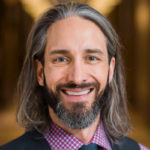 I am the author of the New York Times and Wall Street Journal bestselling personal finance book Killing Sacred Cows: Overcoming the Financial Myths That Are Destroying Your Prosperity.
I am the author of the New York Times and Wall Street Journal bestselling personal finance book Killing Sacred Cows: Overcoming the Financial Myths That Are Destroying Your Prosperity.
Founder and Chief Wealth Architect of the Inc. 500 firm, Wealth Factory. A regular on ABC’s Good Money, he has been on Fox, CNBC, as well as hundreds of radio interviews, and I contributor for Forbes. I also am a frequent speaker at workshops and conferences and live in Salt Lake City.
I have also been interviewed by some of the greats in the personal development space like Hal Elrod, Robert Kiyosaki, Ryan Moran at the Capitalism Conference, Dan Sullivan from Strategic Coach, the Mindvalley Podcast, Project Life Mastery with Stefan James, Joe Polish of Genius Network, Entrepreneur on Fire with John Lee Dumas, The Science of Flipping with Justin Colby, The How of Business, and many more!
Love the show? Subscribe, rate, review, and share!


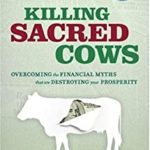

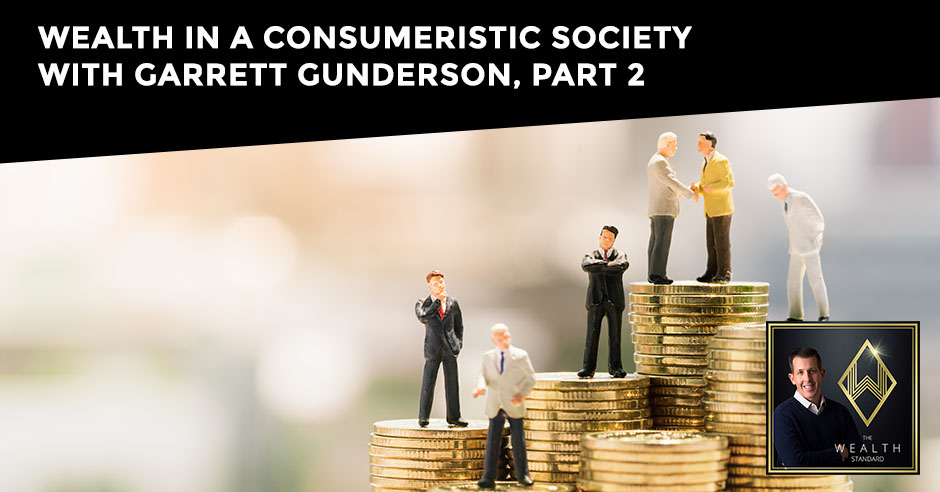








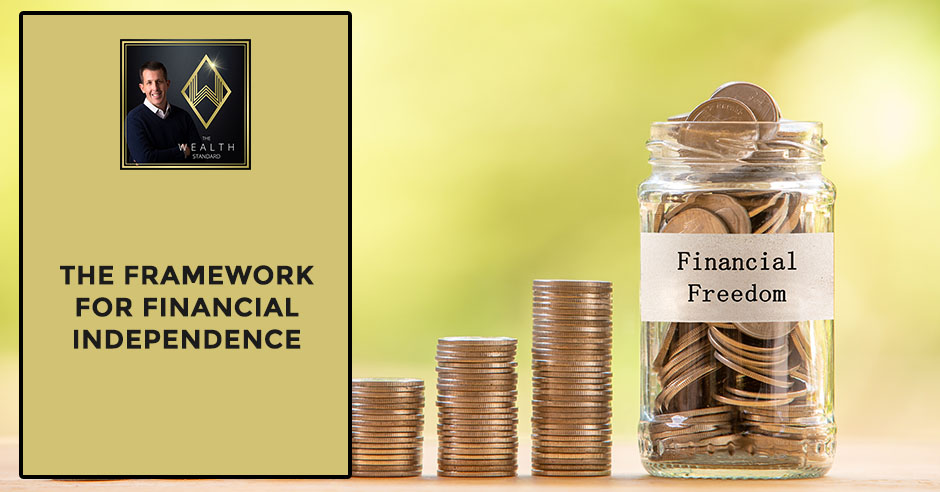



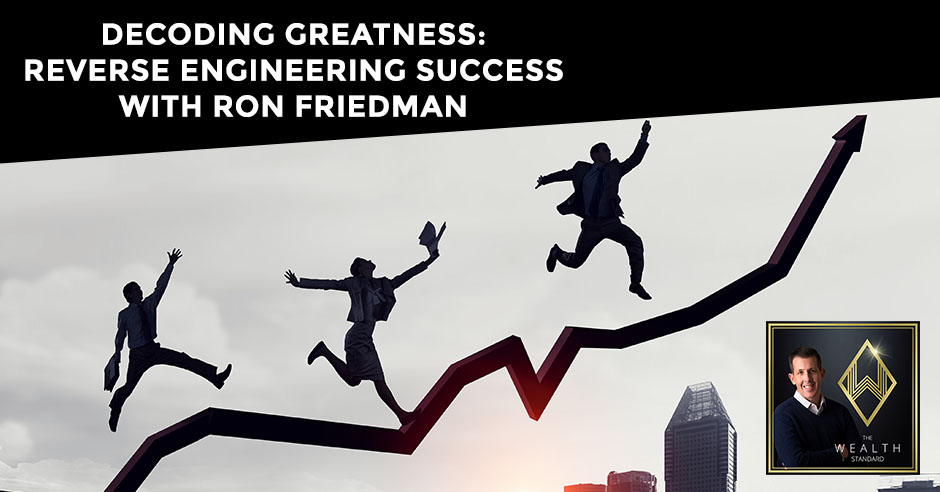
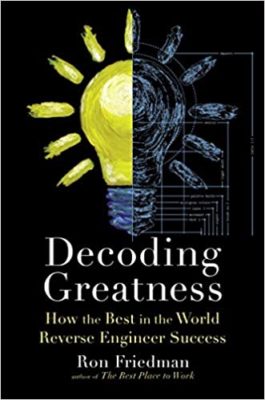



 Ron Friedman, Ph.D. is an award-winning psychologist and founder of ignite80, a consulting firm that helps smart leaders build extraordinary workplaces.
Ron Friedman, Ph.D. is an award-winning psychologist and founder of ignite80, a consulting firm that helps smart leaders build extraordinary workplaces.













